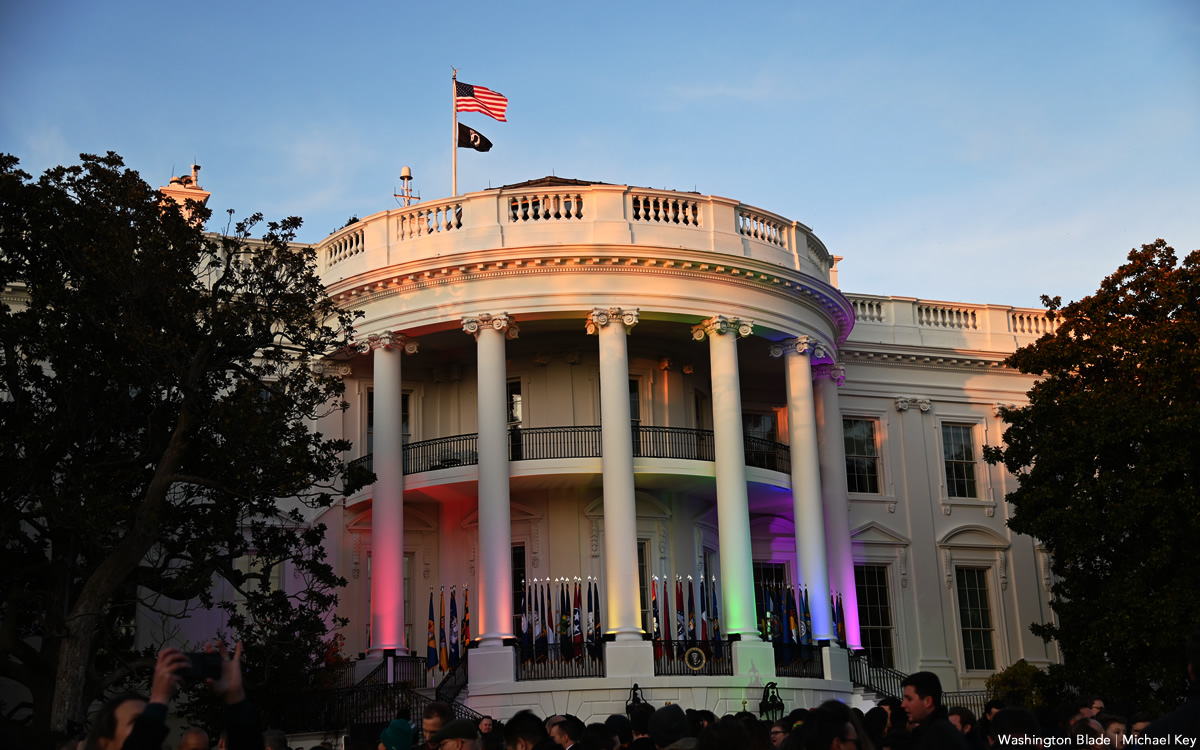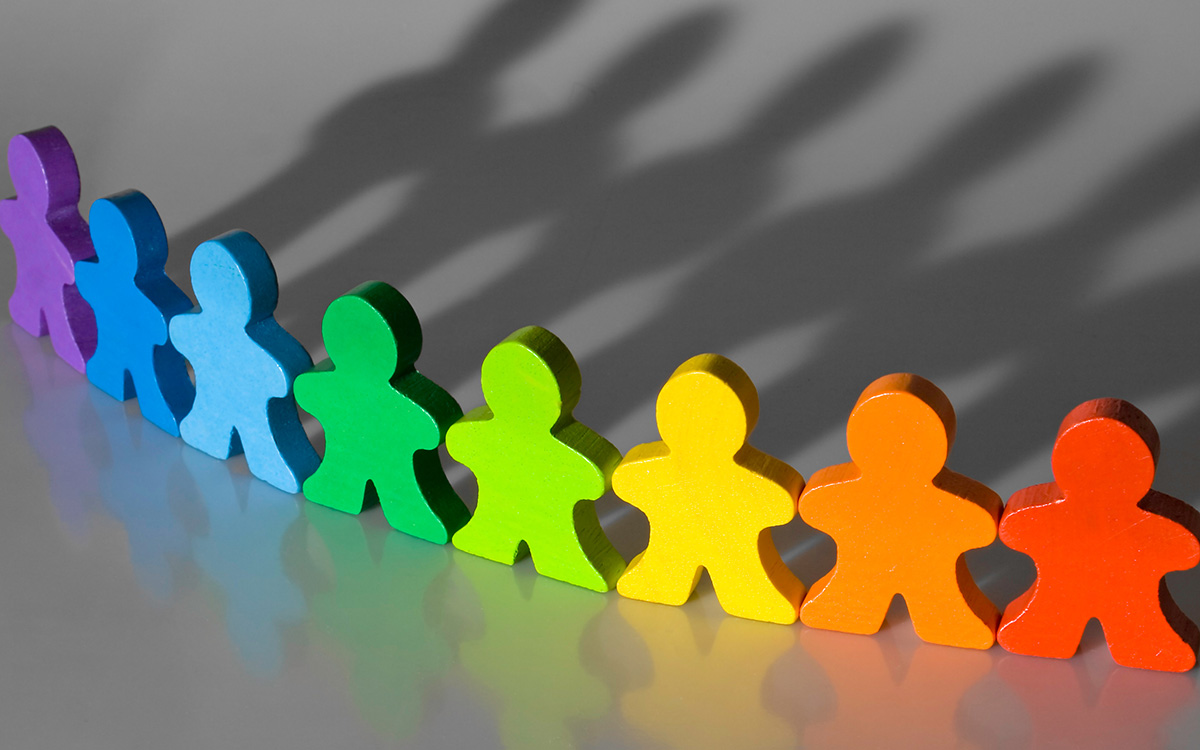Opinions
Building LGBTQ power beyond American dependency
Unity, an international political body, and economic sovereignty are key to reclaiming our future

Two weeks ago, I mentioned “LGBTQ + sovereignty” in this newsletter, the pursuit of self-determined, economically empowered, and politically independent queer communities that control their narratives, resources, and futures as a response to the new world order. A reader cheekily replied, “So your next installment will discuss how to build that power?” implying that it is easier said than done.
It’s a fair criticism. The amplitude and pace of the changes we experience make it easier to fall in love with the problem than to articulate the first steps in a response. Across the board, the people I speak with are overwhelmed and directionless. There’s a shared sense of paralysis as if the path forward for queer liberation has vanished entirely.
Our movement had placed its bets on a single horse: American support reliant on repeated electoral victories by the Democrats. We have become quickly addicted to funding from USAID, the State Department, other U.S.-dominated international organizations, diplomatic initiatives, and leadership from American companies. Recent reports describe how the reversal of this support is debilitating for our entire movement but also illustrate in their recommendations how hard it is to imagine an LGBTQ+ future without the U.S. government and corporations.
A figure I love to quote is that, according to MAP, the number of donors giving more than $25,000 to the most significant U.S. non-profit organizations dropped from an already bafflingly low 302 in 2019 to 134 in 2023 — a 56 percent decrease over five years, reflecting the disengagement of wealthy LGBTQ+ Americans.
One less-documented aspect of the new emerging world order is the consequences of our reliance on U.S. cultural imperialism. While the United States championed values that inspired movements for dignity and equality worldwide, LGBTQ+ people could envision a domino effect. A completely new American ethos, one that aligns with illiberal nations like Russia and China, could embolden the anti-LGBTQ+ movement everywhere.
Planning for the future is generally a painful exercise. It becomes even more challenging when it is not the one we worked towards. Our community has a strong preference for the present, too. This stems from a long-standing inability to envision a happy ending for our movement and personal lives. Long-term planning is not our forte.
Another obstacle is that the leaders articulating the response to the new world order are the ones who bet everything on a losing hand — those who linked our movement to a single political party as if our fight could be outsourced to straight American politicians and corporations. They also often are personally too deep in bed with the Democrats and corporations to envision an alternative strategy. They cling to the illusion that the subsequent Democratic victory will rescue us. And, as LGBTQ+ people increasingly struggle to find dignity and economic opportunities, they continue rearranging chairs at donor galas.
I wrote about how our long-term goals diverged from those of the Democratic Party two years ago in a piece titled “The Return of Vintage Homophobia Calls for Vintage Queer Tactics”: “Progressive politicians have a vested interest in making sure conservatives remain the villains in the fight for LGBTQ+ equality.”
The LGBTQ+ response to a changing world cannot rely solely on the U.S. midterm elections and success in U.S. courts. Many of the changes I described are irreversible: America has lost legitimacy on LGBTQ+ issues, and international economic development is no longer a global priority. Frankly, there is also a good chance that Democrats will become wobbly on LGBTQ+ issues as the campaign to vilify LGBTQ+ people gains momentum.
If the future evolves further into a world where “might make right,” where economic interests override human dignity, where philanthropy and economic development are abandoned, where strict norms of masculinity and the nuclear family make a comeback, and where authoritarian regimes set the terms — where do LGBTQ+ people stand?
In the past few weeks, I have thought about some first steps to regain control of our future:
— Rebuilding unity. In the last year, I have had many versions of a recent conversation with a prominent investor — someone whose track record includes backing some of the most iconic tech founders of our time — who argued that LGBTQ+ people are not “a people,” that we owe nothing to each other, and that we share little beyond sexual practice and loosely defined identities. It was a sobering reminder of how far we’ve drifted from the fierce solidarity that once defined our movement. Larry Kramer must be spinning in his grave. Many of our community’s most economically successful members share that view — intellectually confident yet oblivious to the sacrifices of our elders and our shared destiny. We must recreate a sense of shared destiny. We concede the foundation of collective liberation if we accept that we are just a scattered demographic and not a people bound by struggle, history, and shared hope.
— Establish a truly representative international body. I’d argue for an organized, democratic assembly where every LGBTQ+ person — who has paid modest dues — has a voice and a vote. This body would unite elected representatives across geographies and identities to define a shared political and economic vision, coordinate global action, and hold institutions accountable. It would foster a sense of common purpose and ownership, moving us beyond donor-driven agendas, geopolitical games, or national silos and toward a structure rooted in accountability, solidarity, and self-determination.
— Lay the foundations of economic sovereignty. Political power without economic power is always borrowed — and today, LGBTQ+ communities remain locked out of capital flows, investment ecosystems, and financial decision-making at every level. I spent the last 15 years assessing our socio-economic outcomes, and we are systematically getting crumbs. To change that, we must architect our economic infrastructure: an interconnected system of community development financial institutions, social investment funds, queer-owned enterprises, and financial vehicles designed by and for LGBTQ+ people. We must tap into our community genius to foster employment and economic independence. The Global LGBTQ+ Inclusive Finance Forum I am co-organizing this fall is a first step — less a conference than a catalytic engine to define standards, scale innovations, and mobilize capital across borders. From Nairobi to São Paulo to Manila, we can seed an economy that doesn’t just include us but belongs to us because economic independence is the precondition for lasting freedom.
What comes next for LGBTQ+ people is a question of imagination. For LGBTQ+ people, the challenge is to bridge our creativity with our aversion to planning for the future. If we are to reclaim the trajectory of our movement, we must be less reactionary and more strategic. The collapse of old certainties is not a tragedy — an American-driven queer liberation movement was also inexorably tied to the doomed U.S. brand of capitalism, but an opening. We are being called to imagine more than a world where generous straight allies toss us the scraps of their power and goodwill. Our sovereignty — political, cultural, economic — is not something to be granted by the Democratic party or won in U.S. courtrooms. It is something we must build with intention, with vision, and with each other. This is the work of a generation. Let’s begin.
Fabrice Houdart is a human rights and corporate social responsibility specialist with 20 years of experience at the World Bank and the United Nations. In 2022, he founded the Association of LGBTQ + Corporate Directors, and in 2023, he co-founded Koppa, a nonprofit focused on LGBTQ+ economic empowerment. He originally published this article on “Fabrice Houdart | A Weekly Newsletter on LGBTQ+ Equality” on March 23.
Opinions
Helping your company to be inclusive during hard times
It’s possible to remain true to DEI initiatives

Although everyone knew that many things in our country would change the moment Donald Trump was sworn in for his second term, the speed at which diversity, equity, and inclusion (DEI) initiatives were eliminated was swift and far-reaching. The anti-DEI executive order that Trump issued as part of sweeping first-day executive orders has impacted education and U.S. government programs and has compelled corporations to scale back their DEI initiatives.
However, some companies are still interested in maintaining their commitment to inclusivity in the workplace. During these difficult times, companies can continue to drive morale, retention, and overall business success by remaining true to the need for DEI initiatives.
Companies that prioritize inclusivity often outperform their less-inclusive counterparts, which is all the more reason to have a solid DEI strategy in place. Additionally, inclusivity remains highly valued by employees and leaders alike. Despite efforts to squash valuable DEI initiatives, workplace inclusivity will endure as long as organizations prioritize it as they build their culture.
As a transgender woman, I believe it is essential that I help foster an inclusive environment in the company where I am CEO. The inclusive nature of my company helped me feel comfortable coming to work as my authentic self. By leading by example, I can show my employees how an inclusive workplace culture benefits everyone. By keeping a keen eye on inclusivity, we can attract a more diverse workforce that will strengthen our mission and our level of innovation in the market.
Inclusivity matters because it can increase employee engagement and retention and ultimately lead to higher revenue for the company. Problem solving within the organization can be easier when a wealth of perspectives are brought together. In addition, employee morale can get a significant boost when a company is committed to inclusivity. When employees feel seen and heard, they are more likely to put their all into their work and feel connected to their workplace in a positive way.
So, how can companies continue to promote this all-important inclusivity, especially as DEI programs are being slashed nationwide? It will require sound strategies and recognition of how necessary these initiatives are to build the kind of work culture that will allow everyone to thrive.
Any initiative seeking to increase inclusivity must start with leadership, who should clearly state their dedication to diversity, equity, and inclusion. A top-down approach should be woven through inclusive policies, resource allocation, organizational programs, and leadership accountability. Leaders should focus on impact when forming their inclusivity strategies. DEI initiatives should have achievable goals, and those goals should be clear to all stakeholders within the organization.
The hiring and training process also needs to be inclusive. Leaders should implement blind recruitment strategies to minimize bias — even unintentional bias. Job postings should include inclusive language for all potential applicants, and recruiters should work hard to seek out diverse talent for the organization.
Companies that hope to make inclusion an essential part of their operations must offer education and training on inclusive policies so everyone in the organization is on board. Employees should be able to recognize bias and discrimination and know what to do if they encounter discriminatory behavior. Education and training should be comprehensive, and everyone should have equal access to the information. Inclusive environments can also include mentorship programs where people can have equal access to career advancement.
Accommodations also preserve inclusivity in the workplace. They can include flexible work arrangements that accommodate people with families, people with disabilities, and the needs and lifestyles of other team members. Accommodations can also include hybrid work schedules, generous PTO benefits, or sensory accommodations such as quiet workspaces and noise-canceling headphones.
DEI will undoubtedly continue to be a hot-button issue in the next four years. However, there is still room for inclusivity in the workplace, and it is clearly a pathway to business success. By establishing robust strategies, leaders can make it abundantly clear that they take inclusivity seriously and do not intend to abandon it in these uncertain times.
Wynne Nowland is CEO of Bradley & Parker, and she is also a transgender woman. At age 56, she came out as trans to her entire company in an email—featured in the WSJ—saying, ‘You’ve all known me as Wayne, but tomorrow morning I will arrive to work as Wynne.’
Opinions
Trans people must be allowed to live full, safe lives
MAGA, Project 2025 targeting most vulnerable in society

I have spent much of my life fighting for equality for all people. I grew up with parents who were refugees from Hitler, and am a first-generation gay, Jewish, American. I understand discrimination, though I have had what we now call ‘white privilege.’ That is something granted to me by society, not something I earned. I have fought for civil rights, women’s rights, the rights of people with disabilities, and finally my own rights, when I came out at the age of 34. I was working for Rep. Bella S. Abzug (D-N.Y.), and still not out when she introduced the first version of the Equality Act in 1974. It was five years after Stonewall.
It is now 56 years after Stonewall, and Donald Trump and his MAGA acolytes, still felt they could easily attack transgender people in his campaign for president. The campaign used ads attacking transgender persons to great effect, saying, “Democrats are more into helping they/them, than into helping you.” It was unfair, and disgusting, but effective. It was also a great way to distract people from the havoc they intended to create with Project 2025, both here at home, and around the world. It worked.
What helped make those ads so effective is the simple fact 99% of the population has likely never met a transgender person, or if they have, they don’t know it. Only about 1 percent of the population in the U.S. identify as transgender. There is some debate about the numbers, but currently the LGBTQ community as a whole makes up nearly 10% of the population.
One of the issues people are making a big deal about is whether transgender women should be able to participate in women’s sports, despite the fact their numbers in sport are nearly non-existent. But the argument, even among members of the LGBTQ community, allows questioning their participation be a touch point for discrimination. Those, like lesbian tennis great Martina Navratilova, and others in the LGBTQ community, think those who have transitioned to being women, should not be allowed to participate in women’s sports. Recently California Gov. Gavin Newsom agreed with that. There is some scientific debate about whether a man who goes through puberty as a man, and then transitions, will have an advantage over a cisgender woman. Again, this debate within the LGBTQ community, and the Democratic Party, which generally supports transgender rights, has helped MAGA Republicans use this as a divisive cultural issue.
The debate within the LGBTQ community over transgender people is not new. Over the years there has been debate about how Rep. Barney Frank (D-Mass.), a hero in the LGBTQ community, managed to get ENDA passed in the House in 2007 without including trans protections. His bill was not opposed by the Human Rights Campaign at the time. Barney and HRC came under vicious attack for doing this.
Today, Trump has signed an executive order barring trans people from serving in our military, despite their having fought bravely, and effectively, for years. At the moment a judge has blocked him from carrying out this order but we still don’t know the final decision as Trump’s Justice Department is appealing the ruling. This is just another way Trump and his acolytes, using Project 2025, are going after the most vulnerable in our society. So far, they have threatened Republicans with primaries, and kept any Republican in Congress from speaking out. As we move forward, we will find out if any will put their oath to the Constitution, ahead of their next election.
I have been fortunate to meet many transgender people, some of whom I have fought alongside for the rights of the LGBTQ community. There are groups like Advocates for Trans Equality, and their CEO, Rodrigo Heng-Lehtinen, whose mom happened to be a congresswoman, and Diego Miguel Sanchez, who has fought valiantly for the rights of the LGBTQ community, and is now at PFLAG. Now we have our first transgender congresswoman, Sarah McBride (D-Del.). Then there is Virginia State Sen. Danica Roem, a recognized national leader in the fight for transgender rights. These are men and women who will allow more and more people to see transgender persons are the same as them. They just want to live free, full, and safe lives, like the rest of us.
Peter Rosenstein is a longtime LGBTQ rights and Democratic Party activist.
Opinions
Finding the courage to flee U.S. to save my trans daughter
‘My child has begged for her safety so I must go’

Well, we did it. Two weeks ago, I climbed into our SUV with my 23-year-old trans daughter and I drove to Toronto. A foot firmly in the highly logical/practical and a foot in the conceptual/creative means I am not risk averse because I can sense a problem and comfortably decide whether I can absorb the outcome.
As a result, I don’t scare easily. Every now and then though, my more intuitive self will sound an alarm letting me know that I need to pay attention, and so I do – especially when it comes to my children. Like many of you my internal sirens have been clanging at air raid levels for some time. It’s been clear to me that trans people are going to be both a political tool and a targeted group for the new administration. As ugly forces converged to deliver the results that Tuesday in November I have been fighting the urge to grab my family and simply leave. To get up, get out of the way of what I feel is coming. That’s crazy talk, right? This is the United States. I mean we can’t be there? You know what I mean. THERE.
The place that created the phrase: “Pessimists went to New York, optimists went to Auschwitz.” Rounding up people and simply sending them somewhere. I think we are, and I can’t wait to be wrong.
As I listen to stunning silence from Democrats and threat-immobilized or power-driven Republicans alike, and watch companies pay fealty and capitulate in advance, I am appalled by so few rising to meet the moment. I am disgusted by the demonstrated cowardice just about everywhere we look. What luxury it is to think that as a politician you’re secure enough to wait it out, as though there will be anything left. To think that you will never be in the crosshairs or to think that it’s too hard to do more than you already do. I decided I didn’t have that privilege; for my family optimism could be ruinous.
On occasion I ask my daughter how she feels about things as they evolve, the clank of each hammer on the chisel chipping away her rights, or each time the president of our country has spent five rambling minutes regularly declaring my child a villain or abomination or the result of some woke virus. Being aware, far too sharp and equally sensitive, the question would overwhelm her, “Mom, I know. I know. I just can’t.” For months that would be the end of the conversation. Sometimes she would come to me in tears to talk about how it felt to be unsafe in your own country, or to know that the administration wants to eliminate you. It’s gut wrenching.
Her circle of friends, many of whom struggle, are her lifeline. We all know how important our 20-something tribes are. But when she’d raise the topic with her loves in hopes of creating a plan they too would shut down. This is not unique. For so many of us it is overwhelming. For my daughter, any desire to leave felt like a betrayal, or like she would be abandoning her circle. Any desire to stay felt perilous. I’ve shed torrents of tears at their predicament. That this is their future. And I waited, hitting the snooze button on my internal alarm.
Then politicians started talking about camps and withholding medications. I got a text. “Let’s go. It’s time. [My girlfriend] said she’d move to Canada.” Three weeks later we left.
My family members are fighters and protesters. Ask any one of them and they’ll roll up their sleeves and argue. My parents marched on Washington in the 1960s. They demonstrated at nuclear plants in the ‘70s. My daughter has always fantasized about how the only good Nazi is a dead Nazi, and embracing her free-floating desire to stay and fight. It’s only a fantasy, but I get it. I have that blood in my veins and that idealism thumping in my heart. A political science student and obsessive political hobbyist, I have gone with my peers to rage against the machine, and been an activist from time to time. I never imagined that I would be willing to walk off the field.
The optimist in me says it will all work out, that it is always worth the fight. The middle-aged woman, burdened with the tasks of modern living complains that it’s too hard, too expensive. But my child, my child. My child has begged for her safety. So, I must go. It’s really just logistics, like everything else when you have to move mountains — or countries — for your child. Rent our house. Sell our things. Pack. Drive. Get gas. Check and check. Just like we’d do for any other life change. Look for jobs. Split up the family and delegate responsibilities. Done. As I go through this I think, is it any less than Taylor Swift’s mom did when she left Pennsylvania for Tennessee? Or any family that moves and wakes way before dawn for gymnastics or hockey? I’m not going to lie, I picked the easiest place to go, and the one she was most willing to take on. We joke that if the administration is serious about invading Canada that she may choose to fight for the side where the government fights behind her. On her side and at her back.
“I want to live somewhere my own government doesn’t want me dead.”
Staying to fight the good fight is important. But leaving to protect the vulnerable and the precarious is (while no small feat) doable. I hope. If you feel you should, do. If you feel you can’t, look again. If you have to you will.
Anonymous is the mother of a trans daughter who recently moved from the U.S. to Canada.
-

 Opinions4 days ago
Opinions4 days agoFinding the courage to flee U.S. to save my trans daughter
-

 District of Columbia4 days ago
District of Columbia4 days agoFirst D.C. LGBTQ seniors home ready to open
-

 Sponsored5 days ago
Sponsored5 days agoExploring the world of 99Bitcoins and the impact of Telegram Bots on cryptocurrency education
-

 Virginia4 days ago
Virginia4 days agoVirginia governor vetoes bill barring discrimination against PrEP users










